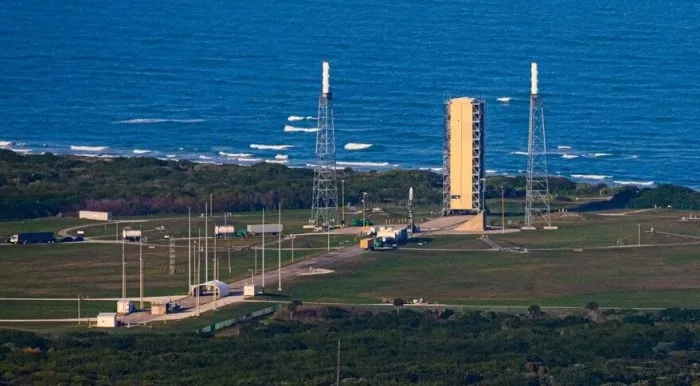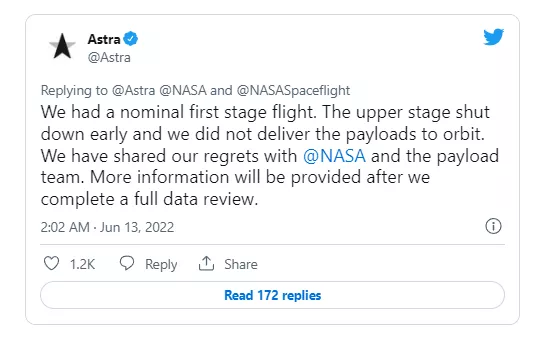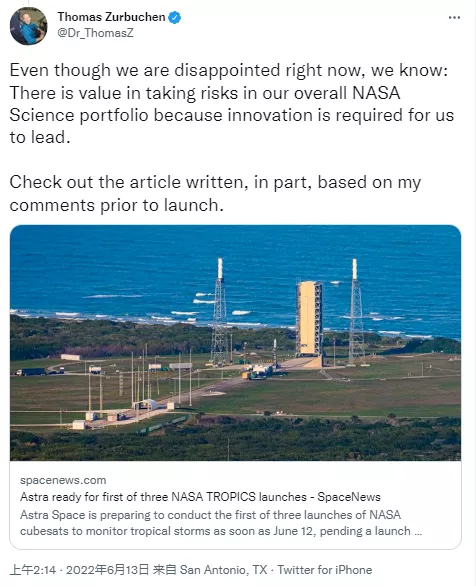According to the verge report, a rocket belonging to the emerging space company Astra failed to send two NASA weather tracking satellites into space after its second stage engine was shut down early. The two satellites were lost due to failure**

Astra's launch vehicle 0010 (lv0010) was successfully launched from the Cape Canaveral space force base in Florida at 1:43 p.m. EDT on Sunday, but suffered a final stage failure after about 10 minutes of flight. The launch is part of NASA's mission to send six tropics satellites into space -- these small, one foot long cubes are used to help NASA better track developing tropical storms. Cubesats are low-cost satellites that are often built by researchers at colleges and universities.

"The last stage was shut down early, and we did not put the payload into orbit," Astra said in a statement on twitter. "We have shared our regrets with @nasa and the payload team." Thomas Zurbuchen, deputy director of NASA's science department, admitted on twitter that the launch was unsuccessful, but remained optimistic, pointing out that it still "provides a great opportunity for new science and launch capabilities".

It is unclear whether or when NASA plans to launch the remaining tropics satellites with Astra, or whether the two lost satellites will be replaced. NASA did not immediately respond to the verge's request for comment.
Astra cooperated with NASA for the first time in February to bring a group of cube satellites into space, marking its first launch from Cape Canaveral. However, Astra lost its payload after the rocket lost control of rotation after launch.
So far, Astra has made only two successful orbital launches out of a total of seven attempts - the company entered orbit for the first time last November, and successfully deployed the customer's satellite in orbit in March. A series of problems have affected other Astra launches, from guidance system problems to engine failures.